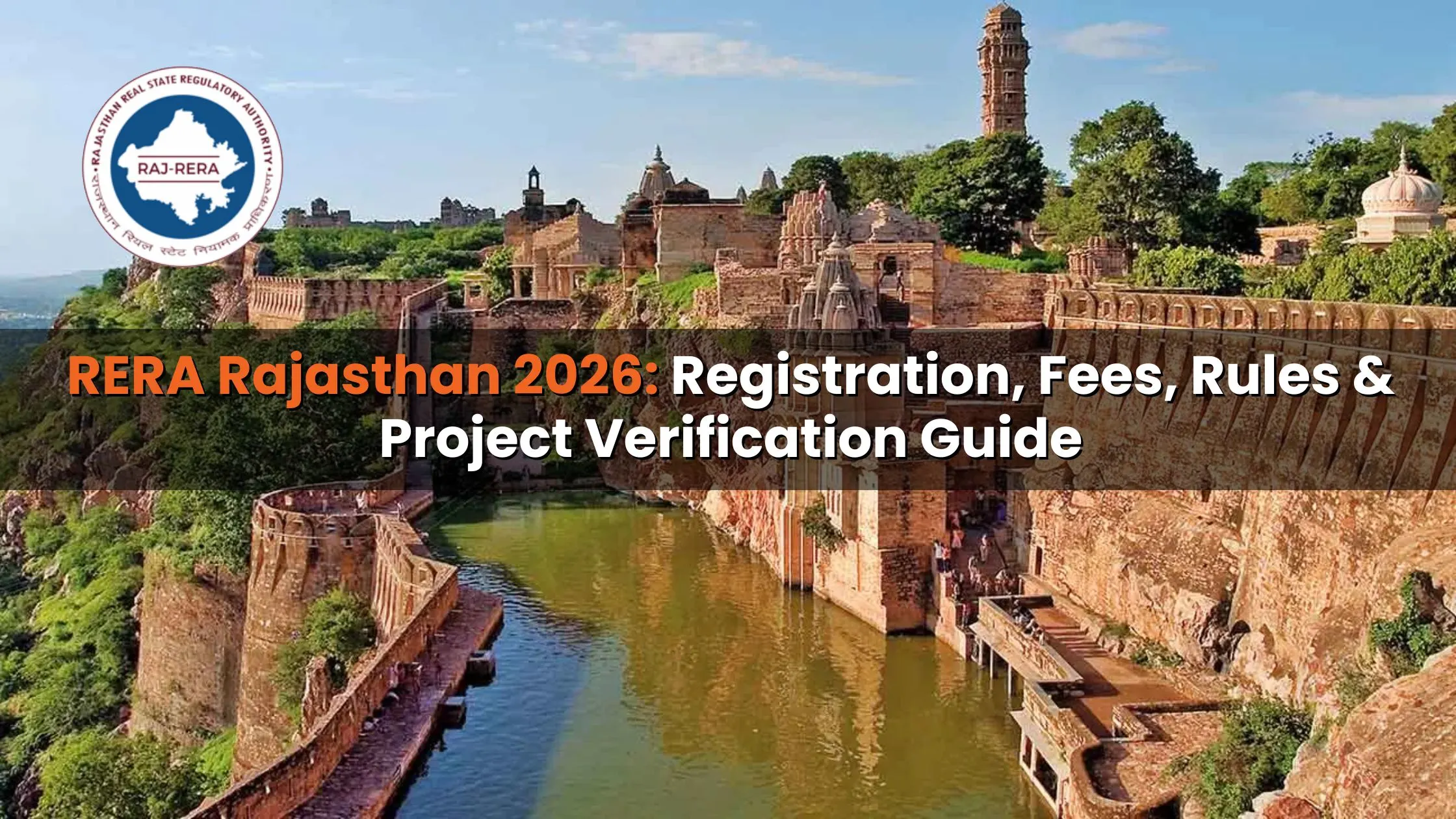Table of Content
▲
Table of Contents
- Introduction to RERA in India
- What is RERA and Why It Matters for Homebuyers?
- Key Objectives of RERA
- Important RERA Guidelines for Homebuyers
- RERA Registration for Developers
- Clear Project Details
- Transparency in Advertisement and Promotions
- Timely Project Delivery
- No Changes to Project Plans without Consent
- RERA-Compliant Payment Process
- How RERA Benefits Homebuyers
- Penalties and Legal Provisions Under RERA
- State-wise RERA Portals for Easy Access
- Common FAQs on RERA Guidelines
- Conclusion
1. Introduction to RERA in India
The Real Estate (Regulation and Development) Act, commonly known as RERA, was introduced in 2016 to bring transparency, accountability, and standardization to the Indian real estate sector. For homebuyers, understanding RERA guidelines is crucial to ensure a secure investment and avoid fraud.
2. What is RERA and Why It Matters for Homebuyers?
RERA stands for Real Estate Regulatory Authority, a government body established to regulate and promote the real estate sector. RERA’s mandate includes making the property-buying process fair and transparent. Here’s why RERA is critical for you as a homebuyer:
- Ensures developers adhere to a standard process
- Provides a platform for grievances and legal recourse
- Reduces project delays and discrepancies
- Ensures transparent information about project progress, approvals, and title details
3. Key Objectives of RERA
|
Objective |
Description |
|
Transparency |
Developers must provide clear project details on RERA portals |
|
Accountability |
Builders are liable for project timelines and quality |
|
Protection for Buyers |
Prevents misrepresentation and false promises |
|
Standardization |
Uniform guidelines across projects in different states |
|
Redressal Mechanism |
Offers a grievance system for resolving buyer complaints |
4. Important RERA Guidelines for Homebuyers
a) RERA Registration for Developers
Every project exceeding 500 sq. meters or more than eight apartments must be registered with RERA. This registration ensures that the project adheres to RERA’s quality and transparency standards.
b) Clear Project Details
Developers are required to update the following details on the RERA portal:
- Project completion timelines
- Approvals and legal clearances
- Project layout and specifications
- Developer’s past track record
c) Transparency in Advertisement and Promotions
Any promotional content or advertisements from developers must include the RERA registration number. This step is to avoid misleading information and allow buyers to verify details on the RERA portal.
d) Timely Project Delivery
One of the primary goals of RERA is to reduce delays in project delivery. If developers fail to deliver by the promised date, they are liable to pay an interest rate to the buyer for each month of delay.
e) No Changes to Project Plans without Consent
Under RERA, developers cannot make any significant changes to the project layout or specifications without written consent from the majority of homebuyers (typically two-thirds).
f) RERA-Compliant Payment Process
Developers can only request payments according to the construction phase, preventing situations where buyers pay a significant amount upfront.
|
Guideline |
RERA Requirement |
|
Project Registration |
Compulsory for projects over 500 sq. meters or with 8+ apartments |
|
Transparency in Promotions |
RERA registration number mandatory in advertisements |
|
Timely Project Delivery |
Penalty for delays, with interest payment to buyers |
|
No Changes Without Consent |
Major changes need consent from at least two-thirds of buyers |
|
Payment Linked to Construction |
Payments collected according to construction phase, not in bulk |
5. How RERA Benefits Homebuyers
RERA provides buyers with security, transparency, and rights. Here are the main benefits of RERA for homebuyers:
- Transparency – Full project details are disclosed, enabling better decision-making.
- Legal Recourse – Easy complaint filing and grievance redressal.
- Financial Security – Reduces risk of fraud through stringent registration and financial discipline requirements.
- Project Quality – Strict guidelines on quality and warranty periods for delivered projects.
6. Penalties and Legal Provisions Under RERA
Under RERA, non-compliant developers face significant penalties:
|
Penalty Type |
Description |
|
Late Project Delivery |
Developer must pay interest on delayed possession |
|
False Information Penalty |
Fine up to 5% of project cost for misrepresentation |
|
Non-Registration Penalty |
10% of estimated project cost |
|
Continuous Non-Compliance |
Up to 3 years imprisonment or additional fine |
|
Buyer Compensation |
Buyers are entitled to compensation if any guideline violation affects them |
7. State-wise RERA Portals for Easy Access
Each state in India has its own RERA portal where homebuyers can verify project details and register complaints. Here’s a quick reference table:
|
State |
RERA Portal Link |
|
Maharashtra |
maharera.mahaonline.gov.in |
|
Uttar Pradesh |
|
|
Karnataka |
rera.karnataka.gov.in |
|
Gujarat |
gujrera.gujarat.gov.in |
|
Tamil Nadu |
|
|
Delhi |
rera.delhi.gov.in |
Conclusion
RERA has transformed the real estate industry in India, ensuring homebuyers’ interests are protected. By understanding and following these essential guidelines, you can make a safer, more informed property purchase. Always check the RERA registration, consult legal experts, and stay updated with state-specific RERA rules for a secure buying experience.

_1731062563.webp)




_1768985363.webp)


Ans 1. The RERA Act was enacted to bring transparency, accountability, and efficiency to India’s real estate sector, ensuring protection for buyers and regulating the practices of builders and developers.
Ans 2. No, it’s recommended to avoid projects without RERA registration as they may not comply with the safety, transparency, and timely delivery guarantees that RERA provides.
Ans 3. Buyers should verify project registration, builder details, completion timeline, approved plans, and any pending cases against the builder on the state RERA website.
Ans 4. Under RERA, builders must compensate buyers for delays. Buyers can either opt for interest payments or request a full refund if the project is significantly delayed.
Ans 5. Developers must keep 70% of buyer payments in an escrow account, to be used only for project-related expenses, ensuring funds are not misused for other projects.